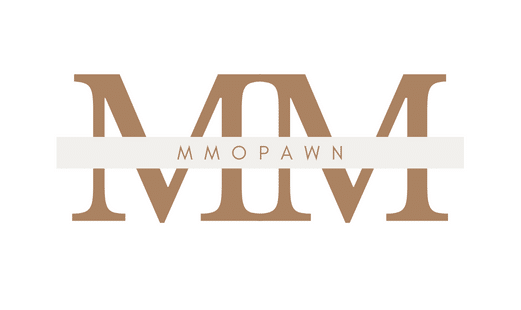The world is rapidly shifting towards the digital sphere, impacting myriad aspects of our lives, including how we conduct events. Instead of traditional live events restricted by geographical location and physical capacity, we are now exploring the vast possibilities presented by virtual events. A well-designed and engaging virtual event platform can easily host hundreds or thousands of attendees from across the globe. In the context of the United Kingdom, these platforms have become a staple for conferences in various fields, from literature to technology. In this article, we will delve into the nitty-gritty of how to create an engaging virtual event platform that will transform your next conference into an immersive, memorable experience.
Understanding Your Audience
Before diving headfirst into the process of creating an event platform, it’s essential to understand your audience. In the world of virtual events, your audience is no longer limited to a specific geographical location. Instead, you’re catering to a diverse group of attendees from different parts of the globe, each with distinct needs and expectations.
A voir aussi : How Can UK-Based Nonprofits Use Digital Storytelling for Fundraising?
Start by defining your audience’s demographics, such as their age, professional background, technological know-how, and what they hope to gain from your event. This will help you fine-tune your platform to be intuitive and accessible to all your attendees, irrespective of their digital literacy level.
For instance, a tech conference targeting software developers might benefit from a sophisticated virtual event platform that includes gamified features and high-tech experiences. In contrast, a literary conference might require a simpler, user-friendly setup that focuses more on content quality and accessibility.
A lire en complément : What Are the Strategies for UK Music Venues to Thrive Post-Pandemic?
The Value of Quality Content
Content is at the heart of any successful event, be it virtual or live. A well-curated set of sessions that resonate with your audience is crucial in creating an unforgettable conference experience. Start by identifying key topics and sessions that will appeal to your audience.
Following this, get the right people to host these sessions. This could be industry experts, thought leaders, or even celebrities who have a deep understanding of the subject matter. Your host must have the ability to engage your audience and keep them hooked throughout the session.
In a virtual setting, quality content also extends to the production value of your sessions. High-quality video and audio, attractive visuals, and a smooth, glitch-free streaming experience are all crucial in maintaining audience engagement.
Choosing the Right Virtual Events Platform
Choosing the right virtual events platform is a critical step in your journey. You need a platform that is robust, user-friendly, and capable of hosting large attendees seamlessly. Furthermore, the platform should allow for real-time interaction between the audience and the host, provide networking opportunities among attendees, and be capable of integrating various content formats, including live presentations, videos, and interactive sessions.
While there are many virtual event platforms available in the market, you must select one that aligns with your specific needs. For instance, some platforms specialize in webinars and online courses, while others are better suited for large-scale conferences and exhibitions.
Incorporating Hybrid Elements
As the world slowly but surely returns to normalcy, hybrid events, which blend the best of live and virtual experiences, are becoming increasingly popular. This model allows people who can travel to attend the event in person, while others can join virtually.
By incorporating hybrid elements into your event, you can provide a more immersive experience for your attendees. This can be achieved through technology such as virtual reality (VR) and augmented reality (AR), which provide a more immersive and interactive event experience.
Driving Engagement
The success of a virtual event hinges on the level of engagement it can drive. As an event organizer, you should leverage various strategies to encourage audience participation. This could take the form of live Q&A sessions, interactive polls, networking lounges, or breakout rooms for smaller group discussions.
Remember, attendees are not just passive spectators in your event. They are active participants who are looking to learn, engage, and connect with others. Hence, fostering a sense of community and providing opportunities for engagement is crucial in building a successful virtual event platform.
To sum up, creating an engaging virtual event platform for UK conferences is not a one-size-fits-all process. It requires a deep understanding of your audience, quality content, the right platform, hybrid elements, and strong engagement strategies. With these elements in place, you’re well on your way to hosting a successful virtual or hybrid conference that leaves a lasting impact on your attendees.
Leveraging Social Media and Event Technology
In today’s digital age, social media plays a significant role in promoting and enhancing your event’s reach. It’s a potent tool that can help increase awareness about your event, engage with your audience, and maintain interaction even after the event has concluded.
Start by creating event pages on platforms like Facebook, LinkedIn, and Eventbrite where potential attendees can learn more about your conference. Make sure to regularly post updates and teasers about your event to keep the buzz alive. You can even create a unique hashtag for your event to streamline all conversations in one place.
During the event, encourage attendees to share their experiences on their social media pages using the event hashtag. This can help boost your event’s visibility and make those not attending feel like they’re part of the experience. After the event, you can use these platforms to share key takeaways, record session videos, and gather feedback.
Apart from social media, there are numerous event technology tools available today that can elevate the attendee experience. This includes mobile event apps that provide all event-related information at the fingertips of your attendees, virtual reality tools to enhance the immersive experience, and chatbots to answer any event-related queries instantly. Moreover, analytics tools can help you track important metrics like attendee engagement, session popularity, and overall event success.
Post-Event Follow-Up
Just because the event has ended doesn’t mean your job is done. A crucial part of hosting successful virtual conferences is the post-event follow-up. This involves reaching out to your attendees to thank them for their participation, sharing key event highlights, and gathering feedback to improve future events.
You can send out an email blast thanking your attendees for their participation and attaching a feedback survey. This survey can include questions about what they liked or didn’t like about the event, their favorite sessions, and suggestions for improvement. It’s also a good idea to share key event highlights and session recordings. This not only adds value for the attendees but also serves as a marketing tool for future events.
Remember, the goal of your virtual event isn’t just to host a one-off conference but to create an engaged community that looks forward to your events. Hence, maintaining communication with your attendees even after the event is crucial.
Conclusion
As we transition towards a more digital world, virtual and hybrid events are becoming the norm. Building an engaging virtual event platform for UK conferences might seem like a daunting task, but with the right approach, it can be a rewarding experience.
Remember, it all starts with understanding your audience and curating content that resonates with them. The right virtual platform, coupled with innovative event technology and social media strategies, can enhance the attendee experience. Incorporating hybrid elements and ensuring high levels of engagement can transform your virtual conference into an immersive experience.
Finally, a strong post-event follow-up strategy will help you gauge the success of your event, gather valuable insights, and maintain engagement with your attendees. With these strategies in place, you’re well on your way to hosting a successful virtual or hybrid event that leaves a lasting impact on your attendees.






